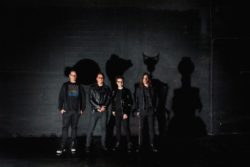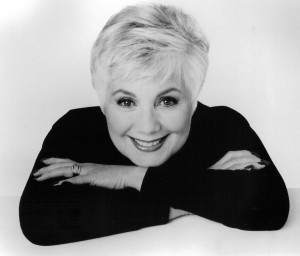In a world of delivery food, social media, online pokies and photo filters, it is nice every once in a while, to be reminded of simpler times and places. “Deadwood: The Movie,” transports us to one of those forgone times.
It is project that’s been rumored and waited for patiently over the last decade which finally pulled into the station on Friday, May 31st, amidst the tragic news that creator David Milch is suffering from Alzheimer’s Disease. Even if you’re not aware of the situation of the film’s creator, there’s an unexpected poignancy in every frame of “Deadwood,” but the miracle of this production is how deftly Milch and company avoid cheap theatrics and emotional manipulation as they provide a satisfingy ending to an iconic TV show.
Befitting one of the most complex television shows of all time, it’s a rich and well paced 110 minutes of filmmaking that rewards fans without pandering to them. It is the product of someone who has been living with these characters since the show unceremoniously went off the air in 2006.
If you Loved the TV Series….
You get the feeling that he knows everything that’s happened to them since then, and we drop in on their current lives as if they have gone on as normal while we’ve beenunable to watch. As much as fans have desperately wanted another season or movie before now, there’s something so perfect and beautiful about how this movie came out that makes you glad that it happened this way.
It’s 1889, a full ten years after the actions of “Deadwood” season three. South Dakota is becoming a state, which means a visit to Deadwood by the villainous Senator George Hearst , who rode off at the end of season three after causing havoc and death in his typical cold hearted way. He, as always, is looking to expand his empire, trying to take land owned by Charlie Utter , and he’s particularly startled to find that his attacker Trixie, whose death was faked, is still breathing.
Meet Up with All Your Fav Characters
Meanwhile, we check in with most of the “Deadwood” familiar faces. Without too many spoilers, characters aren’t all that far from where we left them and yet there’s definitely a sense of time having passed as well. Milch is incredibly smart about how age doesn’t necessarily equate to wisdom, understanding, or drastic change. Time can mellow some antipathies, but it can harden others, and deepen emotions and resentments.
When Alma Garret returns to Deadwood and crosses paths with Seth Bullock there is both a sense of what they once had and that they’ve been happy apart. Both can be true. A vision of a content Bullock family, wife Martha and thier three new children—and seeing a grown Sophia with Alma drives this home. Milch deftly drops in flashbacks to remind us of what these two once meant to each other, conveying how events can shape us but not always trap us. Seth and Alma moved on, but their relationship was formative. As were the events that transpired the last time that Hearst was in town.
Ten Years Later…
Every one of the performer slides back into the characters that kickstarted their careers as if they had kept them close all these years. A well turn from other long-delayed sequels or reboots in which the passage of time is barely alluded to and certainly not believable if it is. The three year run of “Deadwood” gave us one of the most talented ensembles in TV history and their acting skills allow us to belive the passage of time and real events since the end of season three.
Bullock seems more grounded, Sol & Trixie are exceddingly pregnant, Cochran has the look, feel and attitude of someone who has seen a decade of drama, Joanie has returned to her old ways due to her struggle with her emotional demons—they are familiar and yet they bring the gravity of time with them, repeating old habits without feeling like they haven’t changed or aged at all in the last decade.
And the Star of the Show is…
Well, what about Al Swearengen?!?! I’ll just say that Ian McShane’s show-stealing charatcter does not get the arc or ending that fans might be expecting. The iconic anti-hero feels like a projection of the writer, as the movie opens with a dire diagnosis from Doc Cochran that practically sidelines the noble cuthroat.
It’s interesting that Milch choses to turn his most outspoken, aggressive, and popular character into more of a supporting role in the film (which is not to say that McShane isn’t amazing in the film … he is), someone watching the action of the characters around him with a brooding sense that the end is near.
And in the End
And yet “Deadwood: The Movie” is never the sentimental downer it could easily have been. But don’t expect cock-eyed optimism either. Good men die. Bad men prosper. That’s life. What feels miraculous about “Deadwood: The Movie” is how much it captures the comfortable humanity in between those two extremes.
It feels like the product of a creator who fully understands that this is his last creation, but even he refuses to end on an easy note. There can be closure without sentimentality. Sometimes we stop bleeding when we heal. And sometimes we stop bleeding when we die.





